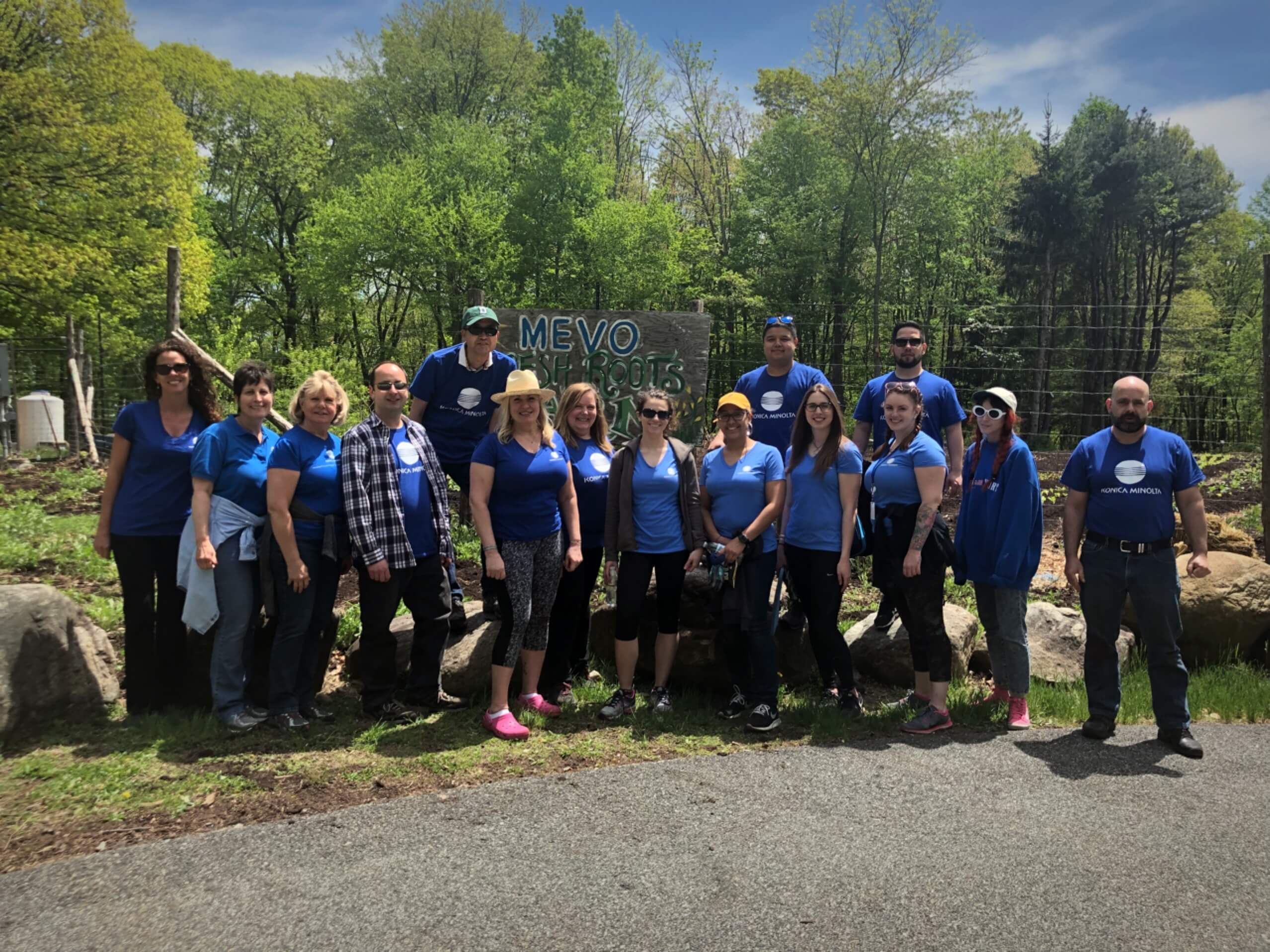It seems like an understatement to say that 2020 has been a transformative year. The global disruption caused by the COVID-19 pandemic has forced society to pause and closely examine our daily activities, reevaluating the ways we live and work.
For years, we’ve known the way we work is going to change and evolve, opting for efficiency over tradition and embracing digitalization. We’ve also been aware of the climate crisis and have consistently taken actions to preserve our planet for future generations. Earlier this year the sudden, widespread outbreak of the Coronavirus forced our world to change with unprecedented speed.

Within days of the first confirmed cases of COVID-19, companies, organizations and schools made plans and took swift action to ensure safety and stop the spread of the virus. This involved locking down, reducing travel and shifting to remote work and virtual social activities. Never in our lifetimes have we witnessed such a large scale shift in the way we approach our daily lives.
Today, several months into the pandemic, it’s evident that the COVID era will prove to be one of the most difficult periods society has faced in recent history. It has also exemplified that rethinking how we approach everyday activities in favor of more efficient and sustainable methods is possible.
You may have seen some of the initial reports released over the past weeks and months outlining the effects the pandemic-induced lockdown has had on our planet. Or maybe you’ve noticed changes in the landscape of your own neighborhood. I personally have had some close-up, first-time encounters with wildlife over the past few months. Between stopping my car to allow for a family of black bears to cross the road and coming face to face with a pair of bald eagles building a nest in my backyard, it’s been a ‘wild’ few months. Maybe being in lockdown has forced me to look closer at the natural world around me, but maybe there’s more to it.
With the reduction in travel and transportation caused by the pandemic, there have been drastic reductions in CO2 emissions in just a few months. A study published in May 2020 found that the daily global carbon emissions during the lockdown measures in early April fell by 17 percent and could lead to an annual carbon emissions decline of up to 7 percent, which would be the biggest drop in nearly 80 years.
While this study and many others like it show impressive reductions, it’s likely that these improvements will be quickly reversed once lockdowns lift and the world resumes normal activity. That is unless we remember the lessons we’ve learned and take meaningful action. The good news is, people are thinking about the environment more than ever before. According to a recent survey from clean manufacturer Genomatica, sustainability is now a top-of-mind issue, with 85 percent of Americans reporting that they’ve been thinking about sustainability the same amount or more during the pandemic, and among those thinking about it more, 45 percent are observing less traffic and 42 percent are noticing cleaner air.

So, now that the world is thinking about sustainability and the future of our planet, what comes next? Moving forward, it is essential that each and every individual does their part, whether that means buying cleaner products, recycling responsibly or reducing travel post-pandemic. Heavy lifts will be especially necessary from corporations. Environmental sustainability and Corporate Social Responsibility (CSR) programs have been growing in importance and prominence over the past decade. Now more than ever, these programs are serving as a core function in business planning and policy making, and companies that are going above and beyond to take meaningful actions are succeeding and growing.
As a global company, Konica Minolta has been a leader in CSR and sustainability for decades. Our global corporate philosophy, “The Creation of New Value,” focuses on the concept that a company exists to support society and help it grow and evolve. While much of our team has been working remotely and in new ways over the past several months, we have been making important progress towards our sustainability goals on a global scale.
In 2017, Konica Minolta added a new, ambitious goal to our environmental action plan, Eco Vision 2050; to become a carbon neutral company by 2050. Being carbon neutral means making no net release of carbon dioxide into the atmosphere, and any emissions made by the company will be offset through eco-friendly actions like planting trees or giving back energy derived from renewable sources to the grid. Due to our belief in the need for quick environmental action, this summer we announced that we’ve changed the target year to achieve Carbon Minus status from 2050 to 2030.
To achieve Carbon Minus status by 2030, two decades earlier than originally planned, we are taking companywide actions to reduce CO2 emissions internally and externally across the board. Some of these measures include working with factories and suppliers to streamline production and reduce emissions, sourcing renewable energy at locations globally and working with customers to enhance their efficiency, reduce environmental impact and support their digital transformations. Through these actions and more, we are confident that our digital transformation activities will be effective in reducing CO2 emissions enough to achieve this ambitious goal by 2030.
On a national level, we are also taking action to combat climate change in the US. Earlier this year, we announced our partnership with leading environmental non-profit organization, the Arbor Day Foundation. Through this collaboration, we are donating the funds to plant more than 10,000 trees in areas in need of reforestation. This initiative will have a significant impact on our planet over the next 40 years, sequestering 1,617 metric tons of net carbon dioxide, intercepting 11,100,000 gallons of rainfall and removing 207 tons of air pollution.
From a product perspective, this summer we received GREENGUARD Gold Certification for our AccurioWide inks, another example of how we’re working to lead the industry in the sustainability and environmental responsibility arena. Products receiving the GREENGUARD certifications are scientifically proven to meet some of the world’s most rigorous third-party emissions standards, helping to reduce indoor air pollution and the risk of chemical exposure.
As our world is changing, we are all adapting, but it’s important to remember that innovation and progress are often born out of challenging times. 2020 has undoubtedly been a trying year, but at Konica Minolta, we are seeing first hand that positive changes are being made as society realizes that the health and wellbeing of people and the planet are interconnected. Let’s hope that this difficult time can serve as a catalyst for change and that it can propel us towards a future where we can live safely and in harmony with our planet.